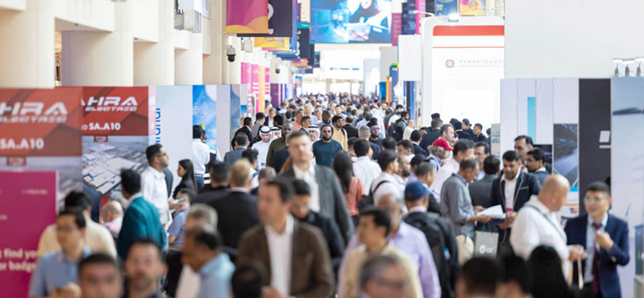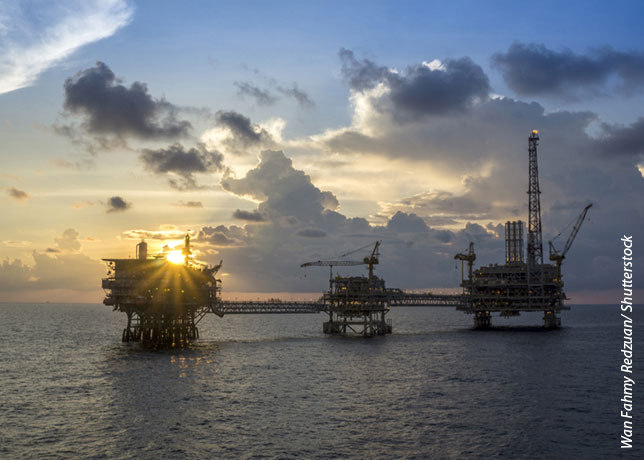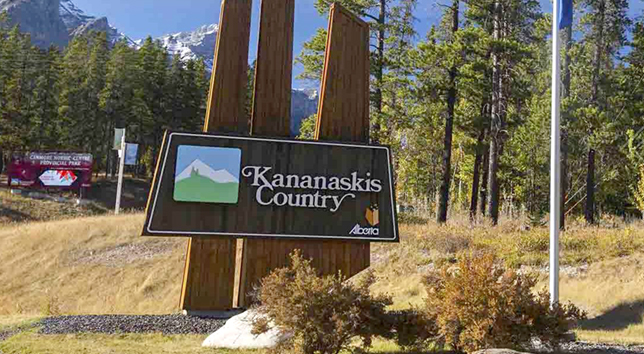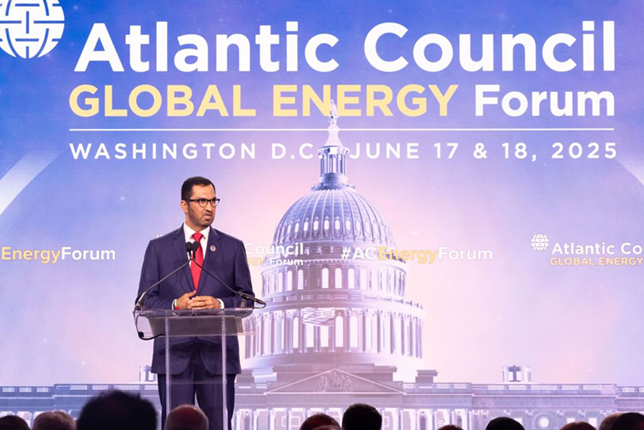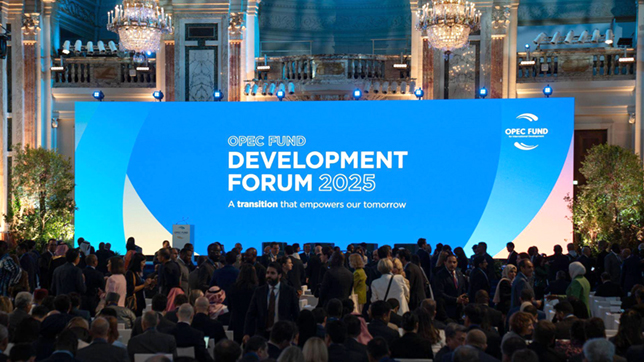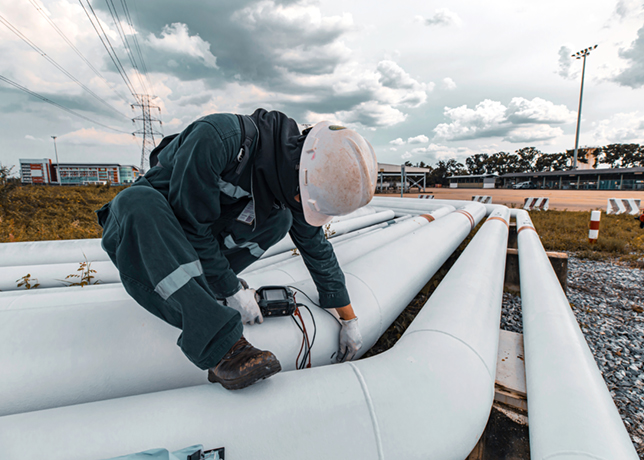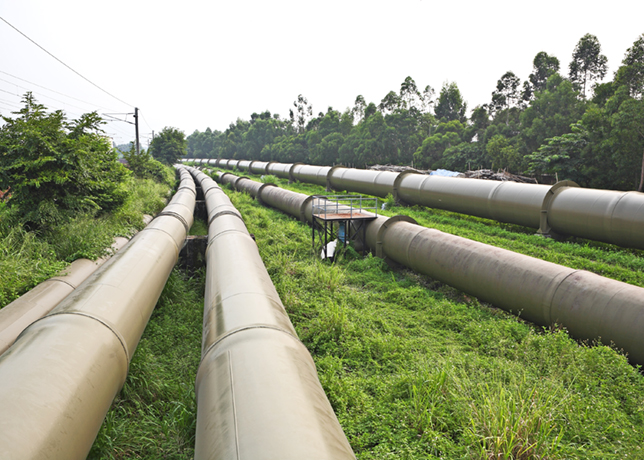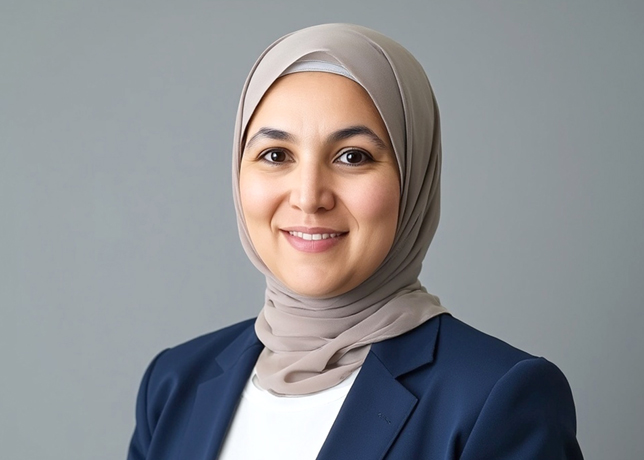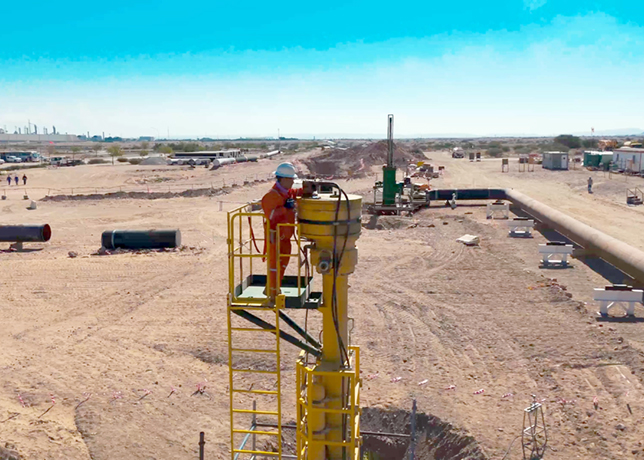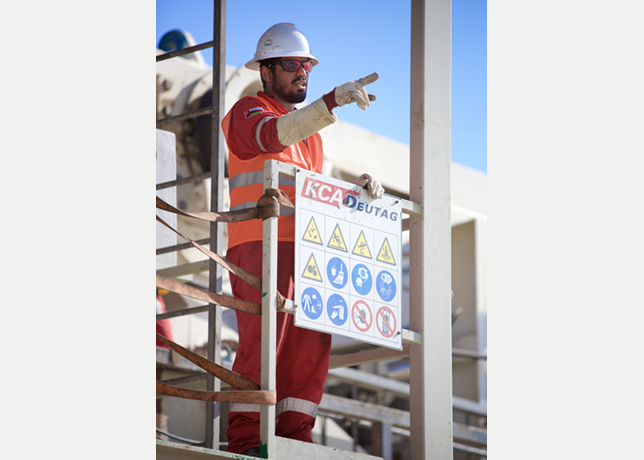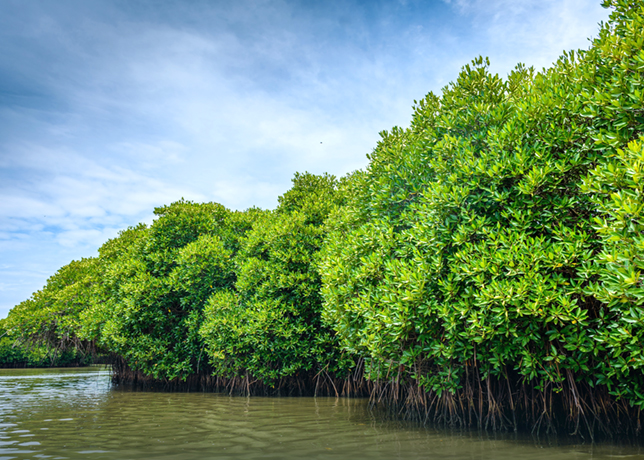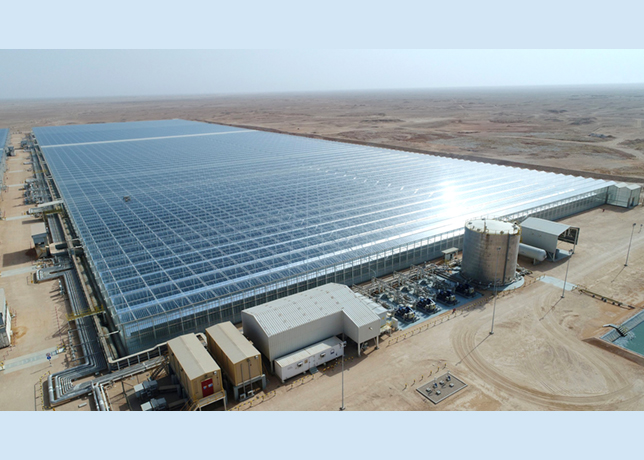
 Sasol team to pass Egypt on way to Qatar
Sasol team to pass Egypt on way to Qatar
South African fuels group Sasol Ltd will launch the world’s first commercial-scale gas-to-liquids (GTL) plant in Qatar, pumping 34,000 barrels per day of diesel, it said.
The GTL project, named Oryx, will produce liquid fuels from natural gas and will be run in partnership with Qatar Petroleum, while oil major Chevron will do most of the marketing in Europe and North America under the joint Sasol Chevron brand.
The $1 billion plant at Ras Laffan will pump out what is being marketed as a cleaner fuel with low sulphur emissions and is aimed at markets that want to reduce environmental pollution and can pay a premium for the alternative fuel.
“The inauguration is on June 6, we will produce 34,000 bpd in the first phase but we plan to expand that with our partners to 100,000 bpd, which we will call Oryx 2,” Sasol chief executive Officer Pat Davies said.
“We also have plans to put up another greenfield facility producing 130,000 bpd in Qatar in the long term.”
Sasol, the world’s biggest producer of synthetic fuel from coal, and Qatar Petroleum hold 49 and 51 per cent stakes respectively in Oryx.
Sasol has a capacity of about 150,000 barrels per day of coal-to-liquid (CTL) fuel, and supplies about 35 per cent of the liquid fuel requirements in Africa’s biggest economy.
Sasol’s technology, which converts coal or natural gas to liquid fuel, was developed in South Africa during the years of apartheid rule to overcome sanctions imposed on the country.
The technology is now seen as a viable way of making an alternative to oil after world energy prices have soared.
For Sasol, which also plans a similar GTL plant in Nigeria with Chevron and a local partner to produce 34,000 bpd, GTL will enable it develop a global footprint and expand its earnings.
Davies said Chevron will provide downstream refining technology, marketing and resources of a global brand.
An official from Qatar - which has the third largest gas reserves in the world behind Russia and Iran - said other oil majors were considering launching GTL projects, including Royal Dutch Shell and Exxon Mobil Corp.
“None of them are as yet where we are now with Sasol, but the thinking is there, the financial support is there so they are just at the early stage of execution,” Ismail Al-Elmadi, a technical expert in Qatar’s energy ministry, said.
Davies and Al-Elmadi spoke at the launch in Johannesburg of an 11,000 km, 46-day journey by a convoy of five Toyota vehicles, across six African countries including Mozambique, Tanzania, Kenya, Sudan and Egypt, which will arrive in Doha, Qatar in time for the launch of the Oryx facility.
One of the cars in the convoy will run purely on GTL diesel.
The Sasol Chevron GTL Challenge will see a team of twelve men and women embarking on a symbolic journey from Sasolburg, South Africa to Qatar, to signal the inauguration of the Oryx GTL plant in Qatar on 6th June.
John Gass, president of Chevron Global Gas and Sasol Chevron chairman of the Board, said, “Drawing on cutting edge technology, Sasol Chevron is delivering a high-performing, ultra clean fuel from natural gas. Throughout this challenging trip, we will be demonstrating the fuel’s capabilities and performance under some of the world’s toughest road conditions - the same fuel that may be used in existing diesel engines. We’re excited about the future of GTL.”
The team has been challenged by Sasol Chevron to complete the 11,000 km journey, across six countries in Africa and some of the toughest conditions on the planet, in 46 days, arriving in Doha, Qatar for the official opening of the GTL production facility.
One of the team’s five vehicles, a Toyota Hilux Raider, dubbed African Renaissance - highlighting the African continent’s growing influence on the world’s energy industry - will be fuelled from beginning to end with GTL (gas-to-liquid) diesel fuel from Sasol’s plant in Sasolburg.
The GTL fuel burns significantly cleaner than conventional diesel and provides superior performance.
George Couvaras, Sasol Chevron CEO, said, “Sasol Chevron is proud to be involved in the marketing of the GTL products from the Oryx plant. We are developing markets and applications that take advantage of the unique properties of the fuel and position it in its rightful place as the benchmark for high quality diesel”.
Sasol’s chief executive Pat Davies added, “We want to show the world that our new GTL diesel burns significantly cleaner and exceeds every performance standard of conventional oil derived diesel fuel.
“I warmly thank our partner Qatar Petroleum for helping us build on what we have developed in South Africa - creating in Qatar the world’s largest and most technologically advanced GTL plant.”
The plant will use Sasol’s proprietary Fischer-Tropsch technology. London-based Sasol Chevron will market the high-quality, environmentally-friendly GTL diesel worldwide later this year.
GTL diesel dovetails neatly into tighter environmental controls and increased diesel consumption in many parts of the world.
In markets such as the US, Europe, Japan and Australia the maximum permissible sulphur content in diesel has plummeted from 5 000 parts per million (ppm) 15 years ago to as little as 10 ppm today.
This GTL diesel has a sulphur content of less than 5 parts per million and has been developed entirely at the Sasol plant in Sasolburg. It provides superior performance to diesel engines while reducing emissions.
The Oryx GTL plant will scale up over the next few months to convert gas from the North Field in the Gulf into 34,000 bpd of liquid hydrocarbons (mainly GTL diesel).
In conjunction with Sasol Chevron and Qatar Petroleum, the intention is to increase the plant’s capacity to more than 100,000 bpd.
The partners are also exploring building an integrated GTL plant with a capacity of about 130,000 bpd in the future.
Sasol is an integrated oil and gas company with substantial chemical interests. Based in South Africa and with international operations, Sasol is listed on the New York Stock Exchange and JSE stock exchange in Johannesburg. Sasol is the leading provider of liquid fuels in South Africa and a major international producer of chemicals.
Sasol uses proprietary Fischer-Tropsch technologies for the commercial production of synthetic fuels and chemicals from low-grade coal and natural gas. It manufactures more than 200 fuel and chemical products that are sold worldwide.
In South Africa Sasol also operates coal mines to provide feedstock for its synthetic fuels plants.
Sasol operates South Africa’s only inland crude oil refinery. The group produces crude oil in offshore Gabon, supplies Mozambican natural gas to end-user customers and petrochemical plants in South Africa, and with partners is developing gas-to-liquids fuel joint ventures in Qatar and Nigeria.











